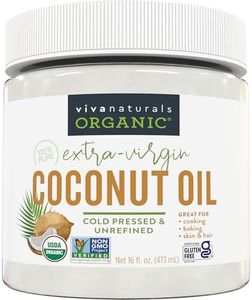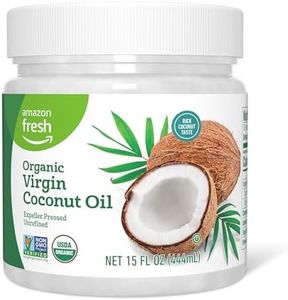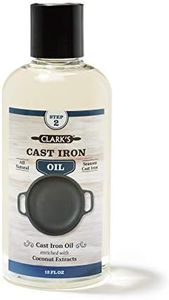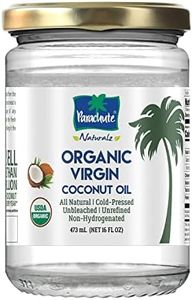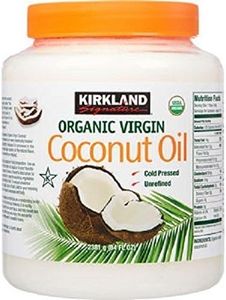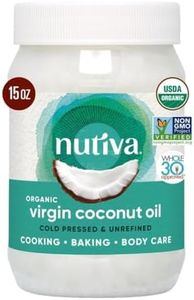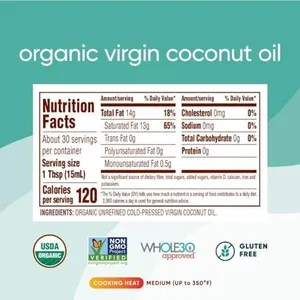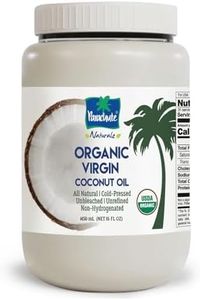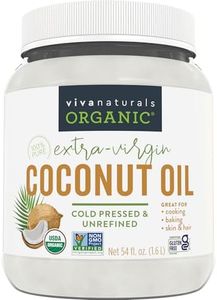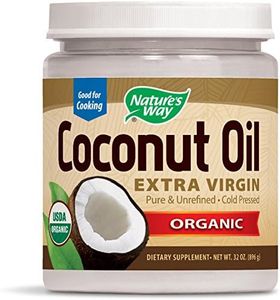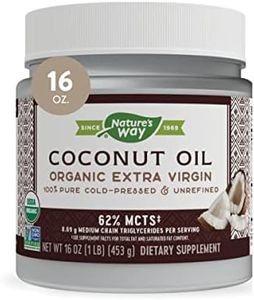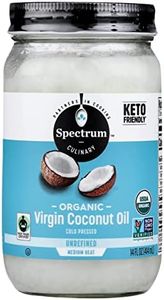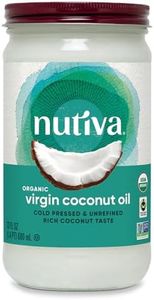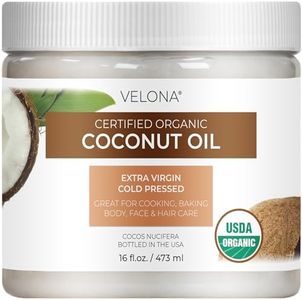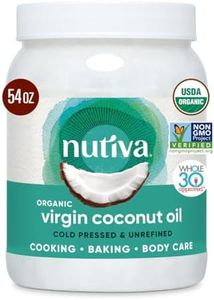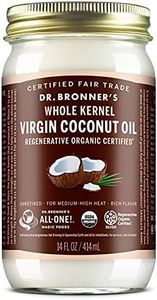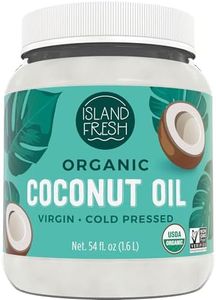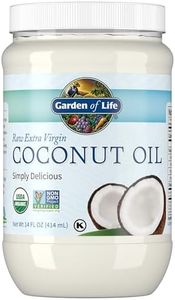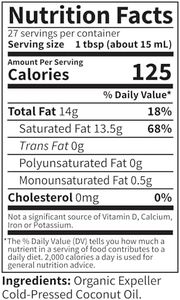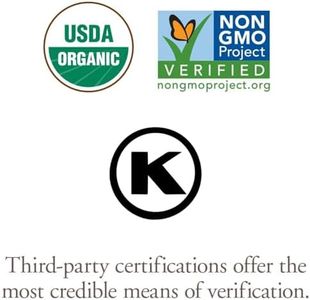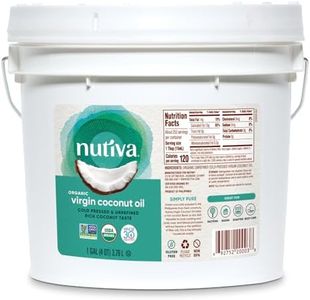10 Best Virgin Coconut Oils 2025 in the United States
Winner
Viva Naturals Organic Coconut Oil - Unrefined, Cold-Pressed Extra Virgin Coconut Oil, USDA Organic and Non-GMO Cooking Oil, Great as Hair Oil and Skin Oil, 16 fl oz
The Viva Naturals Organic Coconut Oil is a versatile product that excels in many areas. Its extraction method is cold-pressed, which helps retain the natural nutrients and ensures a high level of purity. Being unrefined, this coconut oil maintains its natural flavor and aroma, making it a delightful addition to your cooking and baking needs. The USDA Organic and Non-GMO certifications add an extra layer of trustworthiness, ensuring that the product is free from harmful chemicals and additives.
Most important from
109361 reviews
Amazon Fresh, Organic Virgin Coconut Oil, 15 Fl Oz (Previously Happy Belly, Packaging May Vary)
Amazon Fresh Organic Virgin Coconut Oil is a versatile and affordable option for those looking for high-quality coconut oil. The extraction method ensures that the oil remains unrefined, maintaining its natural properties. This means you get the purest form of coconut oil, which is often preferred for both culinary and cosmetic uses. The organic certification adds an extra layer of confidence, ensuring that the product is free from harmful chemicals and pesticides.
Most important from
31624 reviews
Top 10 Best Virgin Coconut Oils 2025 in the United States
Winner
9.7 score
Viva Naturals Organic Coconut Oil - Unrefined, Cold-Pressed Extra Virgin Coconut Oil, USDA Organic and Non-GMO Cooking Oil, Great as Hair Oil and Skin Oil, 16 fl oz
Viva Naturals Organic Coconut Oil - Unrefined, Cold-Pressed Extra Virgin Coconut Oil, USDA Organic and Non-GMO Cooking Oil, Great as Hair Oil and Skin Oil, 16 fl oz
Chosen by 1204 this week
Amazon Fresh, Organic Virgin Coconut Oil, 15 Fl Oz (Previously Happy Belly, Packaging May Vary)
Amazon Fresh, Organic Virgin Coconut Oil, 15 Fl Oz (Previously Happy Belly, Packaging May Vary)
100% Organic Extra Virgin,Coconut Oil,84 Fl .oz,beauty aid and cooking oil
100% Organic Extra Virgin,Coconut Oil,84 Fl .oz,beauty aid and cooking oil
Nutiva, Organic Coconut Oil, 54 Fl Oz
Nutiva, Organic Coconut Oil, 54 Fl Oz
Our technology thoroughly searches through the online shopping world, reviewing hundreds of sites. We then process and analyze this information, updating in real-time to bring you the latest top-rated products. This way, you always get the best and most current options available.

